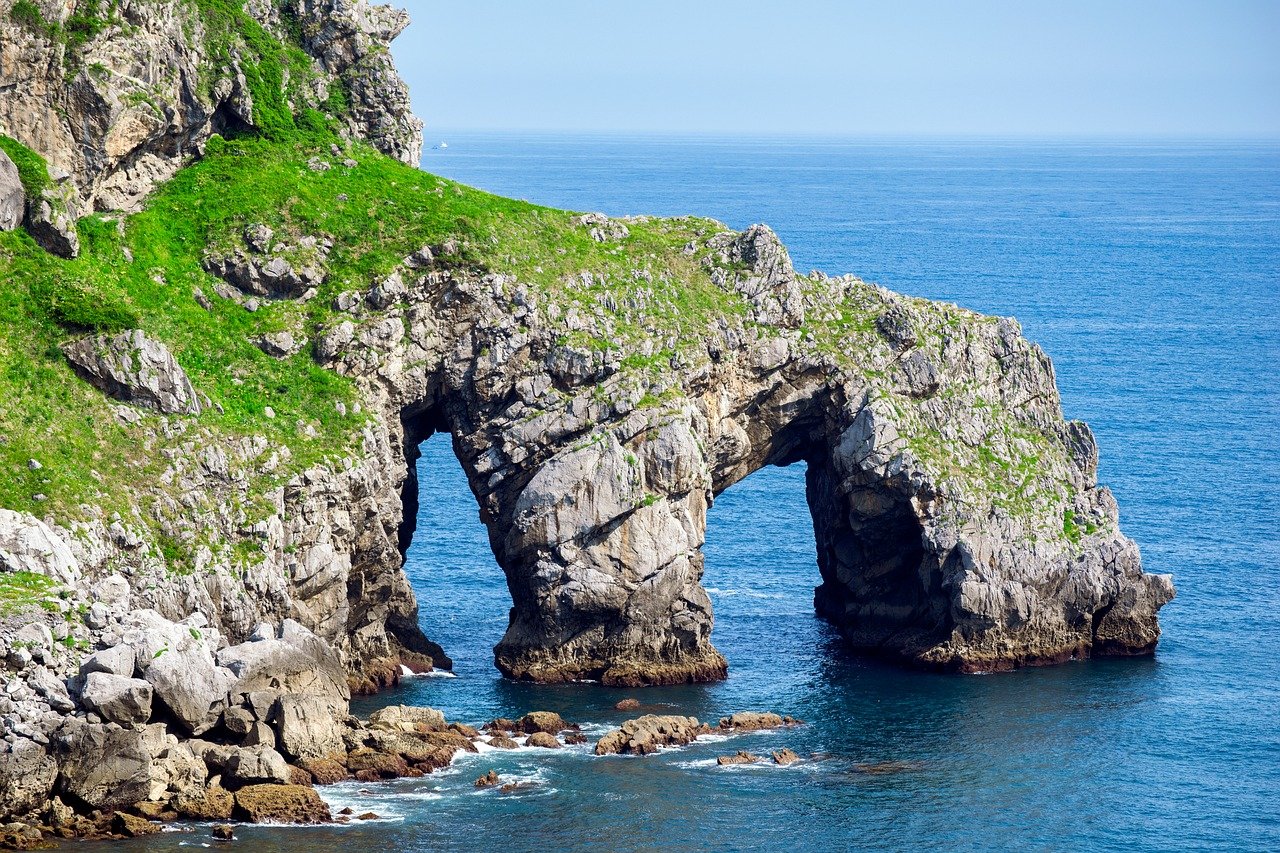Exploring Brazil‘s Indigenous Communities: A Guide to Responsible and Respectful Tribal Tourism
Brazil is a land of diverse cultures and rich history, home to a myriad of Indigenous communities that have preserved their traditions for centuries. These tribes offer unique insights into a way of life that is deeply connected to the environment and spiritual practices. As more travelers seek authentic cultural experiences, Indigenous tourism in Brazil has gained popularity. However, it is imperative to approach such tourism with respect and responsibility to ensure the preservation of these communities and their cultural heritage.
The Rich Tapestry of Brazil’s Indigenous Tribes
Approximately 900,000 Indigenous people live in Brazil, representing about 305 different ethnic groups, each with their own languages, customs, and traditions. The diversity of these tribes is immense, ranging from the Yanomami in the Amazon rainforest to the Guarani in the south. These communities have historically faced numerous challenges, from colonization to modern-day threats of deforestation and industrial encroachment.
Visiting these communities offers a chance to learn about their unique way of life, from traditional crafts and dances to spiritual ceremonies. However, it is crucial to engage in such tourism in a manner that supports and respects the autonomy and dignity of the Indigenous people.
Planning a Responsible Visit
Before embarking on a journey to an Indigenous community, research is key. Understanding the customs, beliefs, and current issues facing the tribe can enrich your experience and ensure your visit is respectful. It’s advisable to contact organizations that work directly with Indigenous communities, such as Amazon Watch, to facilitate your visit and ensure it aligns with the community’s interests.
Additionally, consider the timing of your visit. Some communities may have specific times of the year when they welcome visitors, often tied to cultural events or seasons. Respect their privacy and the sanctity of their rituals by planning your trip around these considerations.

Guidelines for Respectful Interaction
When visiting Indigenous communities, it’s essential to approach with an open mind and a respectful demeanor. Here are some guidelines to help you interact with tribe members respectfully:
- Seek Permission: Always ask for permission before taking photographs or participating in ceremonies. Some tribes may have spiritual or cultural reasons for not allowing certain activities to be documented.
- Dress Appropriately: Respect local customs by dressing modestly. This shows respect for their traditions and avoids drawing unwanted attention.
- Engage Genuinely: Show genuine interest in learning about their culture. Engage in conversations and ask questions, but be respectful of their privacy and boundaries.
- Avoid Assumptions: Each tribe is unique, and assumptions based on stereotypes can be harmful. Approach each community with a fresh perspective and an eagerness to learn.
Supporting Indigenous Communities
Your visit can have a positive impact if approached responsibly. Supporting local economies by purchasing crafts and products directly from the community ensures that the financial benefits of tourism are felt locally. Choose to stay in accommodations that are owned or operated by Indigenous people to further support their economy.
Moreover, consider participating in programs or tours that are led by Indigenous guides. These guides provide valuable insights into their culture and environment, offering a more authentic and enriching experience. Organizations like Cultural Survival advocate for the rights of Indigenous communities and can provide resources and contacts for planning such trips.
The Impact of Tourism on Indigenous Communities
Tourism can be a double-edged sword for Indigenous communities. While it can bring economic benefits and increased awareness of their cultures, it can also lead to cultural commodification and environmental degradation if not managed responsibly. It’s crucial to ensure that tourism initiatives are community-led and that they prioritize the preservation of cultural heritage and the environment.

Efforts are being made to create sustainable tourism models that empower Indigenous people. These models focus on community involvement in decision-making and ensure that tourism projects benefit the community as a whole. Supporting such initiatives can contribute to the long-term sustainability of these communities and their traditions.
Challenges Facing Brazil’s Indigenous Tribes
The challenges facing Brazil’s Indigenous communities are multifaceted. Land rights remain a pressing issue, with many tribes fighting for legal recognition and protection of their ancestral lands. Deforestation, mining, and agricultural expansion pose significant threats to their environment and way of life. Furthermore, the cultural erosion resulting from globalization and external influences can impact the preservation of their traditions.
Understanding these challenges provides context to your visit and highlights the importance of supporting advocacy and policy efforts aimed at protecting Indigenous rights. Engaging with organizations like Forest Peoples Programme can provide deeper insights into these issues and ways to contribute positively.
Conclusion: A Journey of Respect and Learning
Exploring Brazil’s Indigenous communities offers a unique opportunity to connect with cultures that are rich in history, tradition, and spirituality. Responsible and respectful tourism can serve as a bridge between worlds, fostering mutual understanding and respect. As travelers, it is our duty to ensure that our presence contributes positively to the communities we visit, respecting their customs, supporting their economies, and advocating for their rights.
By approaching tribal tourism with mindfulness and a commitment to learning, we can help preserve the diverse cultural heritage of Brazil’s Indigenous tribes for generations to come.
How to Get Involved Beyond Tourism

Tourism is just one way to engage with and support Indigenous communities. There are several other meaningful ways to get involved and make a positive impact. Here are some suggestions:
- Advocacy: Support advocacy groups that work towards the protection and advancement of Indigenous rights. This can be through donations, volunteering, or spreading awareness about their causes.
- Education: Educate yourself and others about the history and current issues facing Indigenous peoples. Knowledge is a powerful tool in fostering understanding and change.
- Sustainable Practices: Adopt sustainable practices in your daily life to help reduce environmental threats that disproportionately affect Indigenous lands, such as deforestation and pollution.
- Support Indigenous Voices: Read and share works by Indigenous authors, artists, and leaders. This helps amplify their voices and ensures their stories are told from their perspectives.
Learning from Indigenous Wisdom
Indigenous communities across Brazil have long been stewards of their environments, possessing invaluable knowledge about sustainable living and natural resource management. Engaging with this wisdom can offer insights into creating a more balanced relationship with nature. From understanding the medicinal uses of plants to learning about sustainable agriculture practices, there is much to be learned and appreciated.
Participating in workshops or cultural exchanges that focus on these aspects can enrich your understanding and appreciation of Indigenous knowledge systems. This not only benefits you as a traveler but also helps preserve these practices for future generations.
The Future of Tribal Tourism in Brazil
The future of tribal tourism in Brazil lies in creating equitable, sustainable, and respectful interactions between visitors and Indigenous communities. Efforts are being made to develop frameworks that prioritize the well-being of these communities while allowing them to share their rich cultural heritage on their own terms.
Government policies and international guidelines are increasingly recognizing the importance of involving Indigenous voices in tourism planning and decision-making. By supporting these initiatives, we can help ensure that tribal tourism benefits all stakeholders and contributes to the cultural and environmental preservation of Indigenous lands.

Final Thoughts
Embarking on a journey to explore Brazil’s Indigenous communities can be a transformative experience, offering deep insights into cultures that have thrived for centuries. By prioritizing respect, responsibility, and sustainable practices, travelers can contribute to the preservation of these communities and their traditions.
The journey does not end with a single visit. It continues through ongoing support, advocacy, and education about the challenges and triumphs of Indigenous peoples. As we move towards a more inclusive and sustainable world, the lessons learned from Brazil’s Indigenous communities can guide us in respecting and valuing the diversity that enriches our global tapestry.
For those interested in further exploring these themes, visiting resources like the United Nations Permanent Forum on Indigenous Issues can provide additional insights and opportunities for engagement.
Understanding the Ethical Dimensions of Tribal Tourism
Ethical considerations are critical when engaging in tribal tourism. It’s important to recognize the power dynamics that can exist between tourists and Indigenous communities, often influenced by historical contexts of colonization and exploitation. Ethical tribal tourism seeks to dismantle these dynamics by promoting equitable partnerships and ensuring that Indigenous communities have autonomy over how their cultures are shared with outsiders.
One aspect of ethical tourism is ensuring that consent is obtained and respected. This starts from the planning phase and continues throughout the visit. It involves clear communication and agreements about what activities are permissible and how cultural expressions are to be shared. The ultimate goal is to foster an exchange that is mutually beneficial and respectful.
Best Practices for Tour Operators

Tour operators play a significant role in shaping the experiences of travelers and the impact of tourism on Indigenous communities. Here are some best practices for operators to ensure responsible tribal tourism:
- Community Engagement: Involve Indigenous communities in the planning and execution of tours. This ensures that their needs and preferences are prioritized.
- Fair Compensation: Ensure that the community receives fair compensation for their participation and any services they provide. This can include direct payments, community development projects, or other forms of support.
- Education: Provide thorough education for tourists about the cultural significance of the practices and sites they will encounter, emphasizing the importance of respect and sensitivity.
- Transparency: Be transparent about where the money goes and how it benefits the community, which helps build trust and accountability.
Success Stories: Positive Models of Tribal Tourism
Several communities in Brazil have successfully developed tourism models that are both respectful and beneficial. For instance, the Yawanawá people have established a cultural exchange program that invites visitors to participate in workshops on traditional crafts and plant medicine. This program not only preserves their cultural practices but also provides a sustainable source of income for the community.
Another example is the Kaxinawá, who have created eco-tourism ventures that highlight their connection to the Amazon rainforest. These initiatives focus on environmental conservation and cultural preservation, allowing visitors to learn about sustainable living while experiencing the beauty of the natural world.
These success stories demonstrate the potential for tribal tourism to be a force for good, fostering cultural exchange and economic empowerment while preserving Indigenous ways of life.
Conclusion: A Call to Action
Exploring Brazil’s Indigenous communities through responsible and respectful tribal tourism is an enriching endeavor that requires sensitivity and commitment. As travelers, tour operators, and global citizens, it is our responsibility to ensure that our interactions with Indigenous cultures are ethical and beneficial.
By supporting sustainable tourism practices, advocating for Indigenous rights, and continuing to educate ourselves and others, we can contribute to a future where Indigenous communities thrive and their cultures are celebrated rather than commodified. Let us embark on this journey with respect, openness, and a dedication to making a positive impact.










